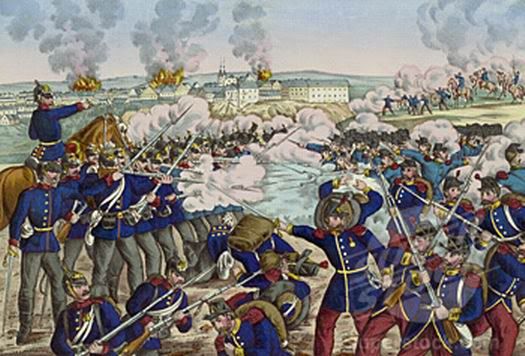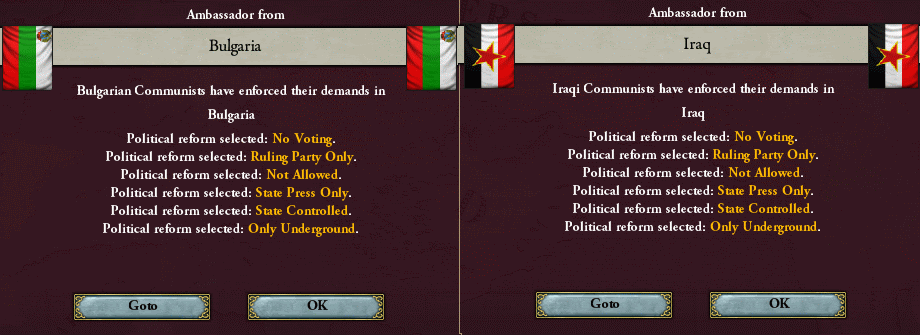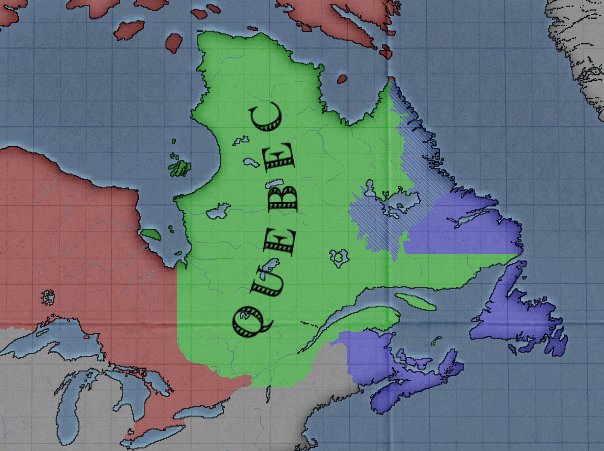The Ninth Parliament of the Republic of Britain 1878-1884 (Part 2)
With reaction triumphant in Germany and France the two great powers of Europe had turned their attention towards sweeping back the revolution, joining arm in arm in this great task. In 1878 they had both lent their support to a coup in Switzerland to overthrow the elected government whilst the Germans had invaded the SRR.
The German invasion had initially been very successful. Bohemia, the economically invaluable region closest to the Prussian heartland of the Empire, had been overwhelmed by the superior numbers and arms of the German Imperial Army. With victory in this region consolidated the Germans had turned their attention towards a final strike towards Vienna itself in the summer of 1878.
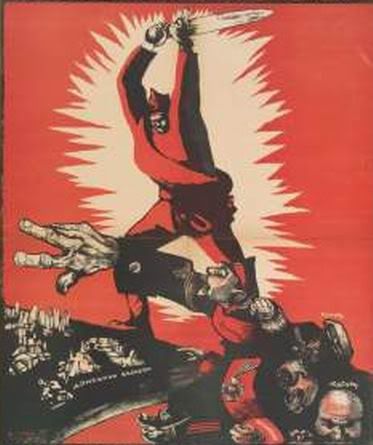
But here they faced defeat. The voluntary, militia style, army of workers wielded by the SRR was extremely effective at times when the homes of the soldiers themselves were under threat and when the revolution itself seemed like it might be extinguished. Fighting with an incredible ferocity and determination, and aided by the supply of arms from Britain, being one of the few states willing to trade in arms with the SRR, the Red Army held the Germans back. Having faced harsh losses and being forced to retreat to Bavaria and Bohemia the Germans were unable to launch another offensive. Having exhausted itself in the defence of Vienna the Red Army too was forced to dig in and wait. During this period 'trench Marxism' started to become a major problem within the German Army itself – the spread of socialist ideas from the people of the SRR was starting to force the discipline of the workingmen within the German Army to waver. Oppression at home and in the military contrasted sharply with what the soldiers were witnessing in their opponents.
When the Red Army launched an offensive into Moravia in the late Autumn there were a few isolated incidents of mutiny amongst the troops. Fearing the spread of this mutiny the German High Command decided to sacrifice territory to ensure that the army kept in good order and those guilty of mutiny could be suitably punished. Over the course of the winter purges were unleashed through the ranks of the military to weed out the rebels. The Red Army attacked again in early 1879 and met a solid and unbreakable rank of committed German troops – facing another mauling. However, the fear of unruliness within the ranks convinced the Germans to look to sign a truce, despite their recent victory. Germany was to continue its occupation of Bohemia (although not Moravia) – loss of this densely industrialised area cost the SRR ½ of its industry within the Austrian half of the Republic and around 1/3 of the industry throughout the entire Republic (including the Hungarian half).

In early 1879 Spanish workers in began a general rising, joining in the movement that was still sweeping across Europe. The Spanish Army was quickly employed in order to put down the revolts acrosss most of the country, but armies of rebels were able to form in Galicia and the Catalan parts of the country – these armies would attempt to march towards Madrid. It would take 3 years for the Madrid government to finally crush the insurrection.
Also in 1879 a rebel group calling itself the Argentinian Revolutionary Front (ARF) initiated its rising against the dictatorship in Argentina. Seizing several cities to the North of Buenos Aires and much of the West of the country the rebels marched towards the more prosperous Pampas and the capital with the aim of toppling the government. However, they faced a series of damaging military defeats in pitched battles and were subsequently pushed back into the countryside and mountains. By the end of the year ARF's attempts of immediate revolution had ended and they were forced to maintain their war merely as a guerilla campaign based in the Andes.
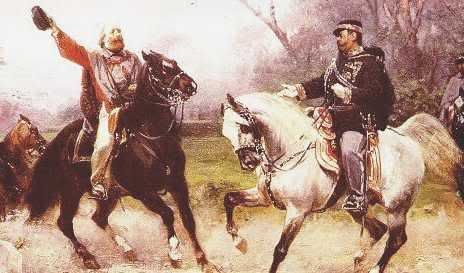
Italy too had been swept by revolutionary fervour imported from the neighbouring SRR. Peasant rebellions in the South had left much of the Kingdom of Two Sicilies ungovernable, in Rome the Pope relied on a large guard of armed mercenaries to keep the mobs at bay whilst the industrial districts of Piedmont and Lombardy were already rocking. The fear of losing Italy to the socialist camp was intense in France – the country was a traditionally very large stake in Italian affairs. The French had come to the conclusion that the only state with the physical capacity to restore order in Italy was Piedmont and the only political force that could defeat socialism was Pan-Italianism. In return for a minor amendment to the border (Savoy and Nice were ceded to France) the French provided Piedmont with all the troops, arms, money and political backing necessary to launch a campaign to take control of the entire peninsula.
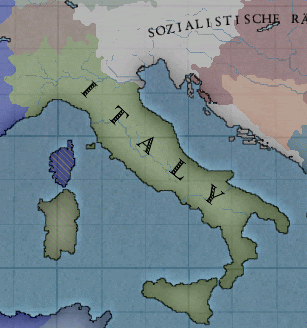
By the end of November the revolution had been quashed in Italy and King Umberto of Sardinia-Piedmont had been proclaimed Umberto I, King of Italy. Europe's Imperialist camp now had a third great continental power, this one, right on the border with the SRR and with a deep desire to claim the Italian populated lands of the Republic.
In 1880 things seemed to start to calm down slightly as a brief period of peace began to envelop the world – the two rival forces that had caused so much bloodshed over the past 3 years seemed to have exhausted one another
However, in 1881, socialist forces supported by Turkey overthrew the young governments of both Bulgaria and Iraq.
Meanwhile, in 1882, war returned to North America. After his successful counter-revolution 1878 the self proclaimed 'King Francois I of Quebec' had been enjoying a reign of terror. His assaults on suspected 'enemies of the state' had not stopped at the imprisonment and execution of socialists but had led to similar treatment for liberals and Republicans and most damagingly of all Anglo-Canadians. English speakers (10-15% of the entire population at the time) were suspected of treachery and forced to endure a harsh oppression. Eventually the maltreatment and provocations became too much for the neighbouring Canadian Republic and Canada declared war upon Quebec.
To be continued ...
